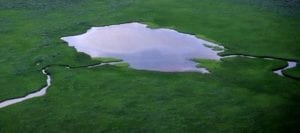Latest research shows that 64% of wetlands worldwide have been lost since 1900, and that 76% of populations of freshwater plants and animals have disappeared in the last 40 years alone according to the WWF’s Living Planet report.
“Wetlands for our future” – was this year’s theme for World Wetlands Day – and it highlighted the variety of ways in which wetlands provide for us all, and the many ways that we can all contribute to their conservation and restoration.
Too few people realise the numerous services and benefits wetlands provide and their importance for humans and the planet. Most importantly, wetlands are the source of our daily water.
Feeding humanity
Additionally wetlands feed humanity. Rice, grown in wetland paddies, is the staple diet of nearly three billion people.
The average human consumes 19 kg of fish each year. And most of the fish sold, breed and raise their young in coastal waters and estuaries. Moreover, 70% of all fresh water extracted globally is used for crop irrigation.
Filter harmful waste
Wetlands purify and filter harmful waste from water, helping to absorb harmful fertilisers and pesticides, as well as heavy metals and toxins from industry. As an example, the Nakivubo Swamp in Kampala, Uganda filters sewage and industrial effluents for free; a treatment plant to do the same job would cost $2 million per year.
Nature’s shock absorbers
Wetlands act as nature’s shock absorbers. Peatlands and wet grasslands in river basins act as natural sponges, absorbing rainfall, creating wide surface pools that ease any flooding in rivers. The same storage capacity will also safeguard against the impact of drought.
Sustainable livelihoods
Wetlands provide sustainable livelihoods and products: 61.8 million people depend directly on fishing and fisheries for a living. Timber for building, vegetable oil, medicinal plants, animal fodder, and stems and leaves for weaving also comes from our wetlands.
Fighting climate change
And importantly for our future, wetlands help to fight climate change. Peatlands alone store twice as much carbon as all the world’s forests combined, and in the face of rising sea levels, coastal wetlands reduce the impact of hurricanes and tsunamis. They also bind the shoreline and resist erosion.
“Wetlands provide services worth an estimated $15 trillion worldwide – including food, water, and climate regulation – demonstrating just how vital they are to humans and the environment alike and highlighting the need to conserve them,” explains Achim Steiner, United Nations Under-Secretary-General and UN Environment Programme Executive Director.
“ At the same time, the economic cost of the destruction of carbon-rich mangroves, which are being cleared 3 – 5 times faster than terrestrial forests, is at $42 billion in economic damages annually.”








